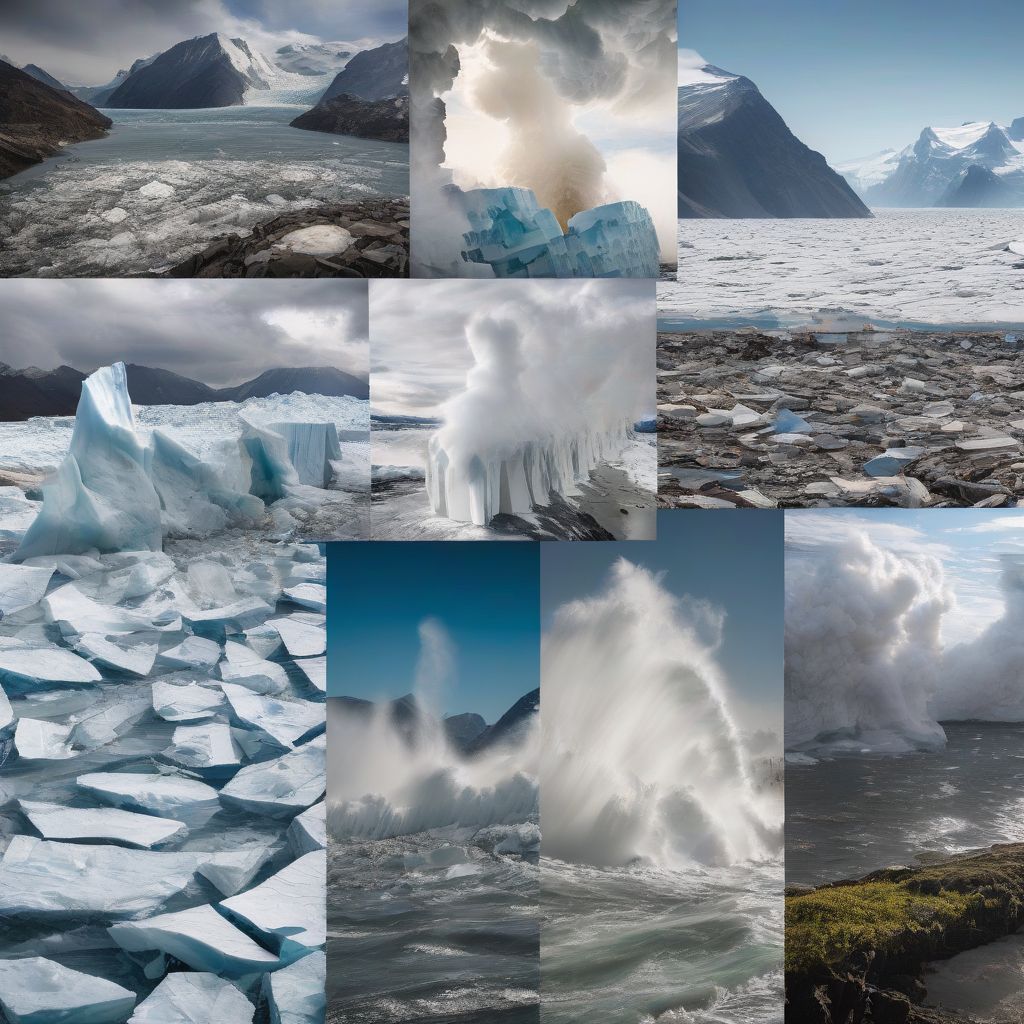Imagine waking up to a world where extreme weather events are the norm, coastlines are swallowed by rising seas, and ecosystems struggle to survive. This isn’t a scene from a dystopian movie; it’s the stark reality painted by the latest research on climate change. As a nutritionist and meal prep coach, I witness firsthand the interconnectedness of our planet’s health with our own. The food we consume, the air we breathe, and the water we rely on are all intricately linked to a stable climate. So, let’s delve into the latest scientific findings, understand their implications, and explore how we can mitigate the effects of this global challenge.
Unmasking the Science: A Glimpse into Recent Discoveries
The Intergovernmental Panel on Climate Change (IPCC), the leading international body for the assessment of climate change, released its Sixth Assessment Report (AR6) in 2021. This landmark report sent a clear and urgent message: human activities are unequivocally causing unprecedented changes to our climate system. The report highlighted several key findings:
1. The warming trend is accelerating: Global surface temperature has increased by about 1.1°C since the pre-industrial period (1850-1900), with the past five years being the hottest on record.
2. Human influence is undeniable: It is extremely likely that human activities, primarily through greenhouse gas emissions, are the dominant cause of this observed warming.
3. Impacts are far-reaching and intensifying: Climate change is already affecting every inhabited region across the globe, with increasingly frequent and severe extreme weather events, rising sea levels, and melting glaciers.
4. Urgent action is needed: Limiting global warming to 1.5°C above pre-industrial levels, a critical threshold to avoid catastrophic consequences, requires immediate, rapid, and large-scale reductions in greenhouse gas emissions.
 Climate Change Impact
Climate Change Impact
Beyond the Headlines: Digging Deeper into Specific Research Areas
Beyond the IPCC’s comprehensive assessment, numerous other studies have shed light on specific aspects of climate change and its impacts.
1. The Role of Arctic Amplification: Research has revealed that the Arctic is warming at a rate twice as fast as the global average, a phenomenon known as Arctic amplification. This accelerated warming is linked to the melting of ice and snow, which reduces the Earth’s ability to reflect sunlight, leading to further warming.
2. Ocean Acidification and Marine Ecosystems: As the ocean absorbs carbon dioxide from the atmosphere, its acidity increases, posing a significant threat to marine life. Studies have shown that ocean acidification can harm coral reefs, shellfish, and plankton, with cascading effects throughout the marine food web.
3. Climate Change and Human Health: The World Health Organization (WHO) has recognized climate change as the single biggest health threat facing humanity. Research highlights the direct and indirect health impacts, including heat-related illnesses, respiratory problems due to air pollution, and the spread of infectious diseases.
Navigating Our Future: A Call for Collective Action
The latest research on climate change paints a sobering picture, but it also offers a glimmer of hope. The science is clear: we have the knowledge and the tools to address this challenge. What we need now is collective action.
1. Transitioning to Renewable Energy: Rapidly transitioning away from fossil fuels and embracing renewable energy sources like solar, wind, and geothermal is crucial to reducing greenhouse gas emissions.
2. Sustainable Land Management: Protecting and restoring forests, promoting sustainable agriculture practices, and reducing deforestation can help sequester carbon dioxide from the atmosphere.
3. Investing in Climate Adaptation: Adapting to the unavoidable impacts of climate change, such as sea level rise and extreme weather events, is essential to protect communities and ecosystems.
Turning Knowledge into Action: Our Shared Responsibility
The latest research on climate change serves as a wake-up call, urging us to act now to safeguard our planet’s future. By embracing sustainable practices, advocating for policy changes, and supporting organizations at the forefront of climate action, we can all contribute to creating a healthier and more resilient world.
What steps will you take to be part of the solution? Share your thoughts and ideas in the comments below. Let’s inspire each other to create positive change!
[amazon bestseller=”climate change”]
